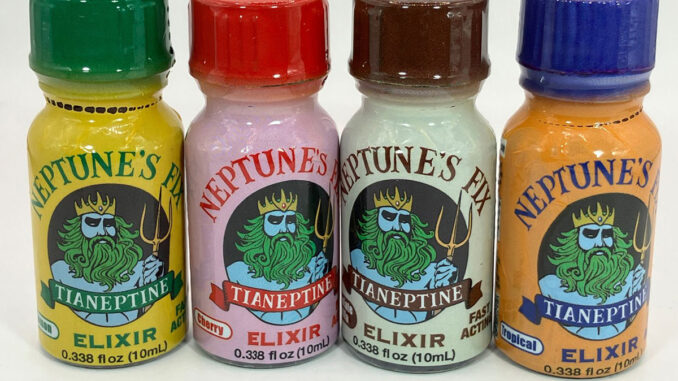
RALEIGH — The North Carolina House unanimously passed a bill that would add the drug tianeptine, often referred to as “gas station heroin,” to the state’s controlled substance.
Tianeptine is an antidepressant-type drug with opioid-like effects that requires a prescription in most European nations but not in the United States.
Rep. Erin Paré (R-Wake), one of House Bill 903’s primary sponsors, said during her floor remarks that the FDA first started warning about the dangers of the drug in 2018. She said tianeptine is linked to a rise in overdose deaths across the country and that use of the substance can lead to loss of consciousness, seizures and serious health problems.”
“And, sadly, families right here in North Carolina are dealing with this growing problem with their kids,” Paré said.
She added that “at least eight states so far have moved to ban tianeptine,” and North Carolina should be next.
“I first learned about the dangers of tianeptine from families in my district whose kids have become addicted to it,” Paré said in a statement following the bill’s passage. “This is an important bill to protect our kids from accessing this dangerous substance.”
All 110 members present for the June 12 vote passed House Bill 903, but there was no action taken by the Senate prior to the end of the legislative short session. Following original publication of this article, House Bill 250, which contained similar provisions to House Bill 903, was passed by both chambers and signed into law by the governor.
Tianeptine is sometimes called “gas station heroin” because it often appears in products sold in gas stations under names like Pegasus, Neptune’s Fix or Zaza. Some of these products claim to be a supplement that will boost energy or brain functioning. Tianeptine can also go by other names, such as tianeptine sulfate, tianeptine sodium powder, tianna, tianna green, tianna red and tianna white.
Per the Centers for Disease Control and Prevention, side effects can include agitation, confusion, drowsiness, nausea, vomiting, rapid heartbeat, sweating, slowed or stopped breathing, and it is considered a highly addictive substance.
In the U.S., items containing tianeptine are often labeled as dietary supplements and can be bought with no age restrictions and without an ID or prescription. That has been a means for companies to widely sell the products containing tianeptine despite the drug receiving no approvals from the Food and Drug Administration.
The FDA has warned about tianeptine’s dangers when using it as an “opioid alternative, or to self-treat anxiety or depression,” as well as the drug being linked to “serious harm, overdoses, and death.”
In 2023, the North Carolina House Select Committee on Substance Abuse looked at the proliferation of tianeptine in products found in gas stations and convenience stores, resulting in House Bill 563, which included regulation of the tianeptine and would have reclassified it as a Schedule 1 drug.
The 2023 version of the bill did not advance past the Senate but has been resurrected during the 2024 short session.
The current version of House Bill 563 places tianeptine on the controlled substances schedule, along with the drugs xylazine and kratom. The bill would put restrictions on hemp-derived consumable products, such as banning them from school grounds and prohibiting the sale of hemp-derived items to persons under the age of 21.
The biggest feature of the revised bill is the inclusion of the “Compassionate Care Act,” which would make medical use of marijuana legal to obtain for qualified patients with a debilitating medical condition via a regulated supply system of cannabis products.
House Bill 563 passed the Senate on June 24 by a vote of 36-10 but is unlikely to move in the House. In the past few years, the Senate has successfully passed a medical marijuana bill only to have the measure die in a House committee.

